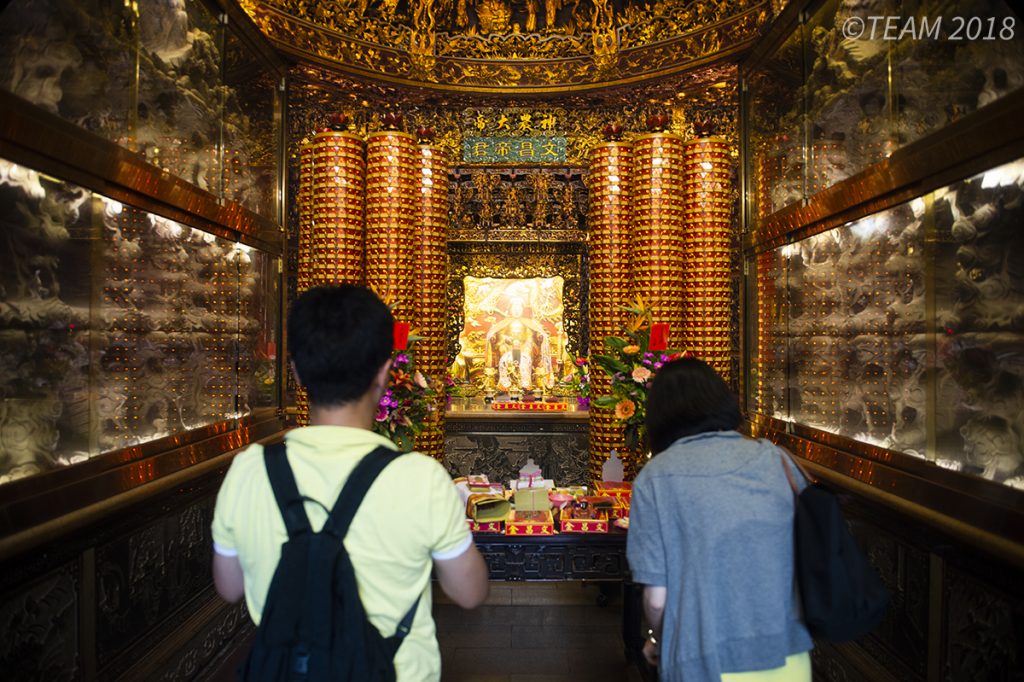
Ministry Updates
The Day Evil Spirits Stopped Being Scary
February 19, 2019
by admin

Having kids creates all kinds of fears: careless babysitters, cleaning supplies, everything a child could possibly put in her mouth. But Jian’s fear was far more sinister.
Jian* was worried about relatives — his dead relatives.
Whatever their personalities in life, Jian’s ancestors were fearsome in death. They had to be placated every April or they would wreak havoc. Or so Jian was taught.
And if they wanted to hurt Jian, what better way than to hurt his daughter?
As an atheist, Jian knew he shouldn’t be afraid of ghosts. Yet, he couldn’t help but wonder, what if it was true? And what if his sacrifices to the ancestors weren’t enough to save his daughter from their wrath?
Atheism Brings Jian Success — and Confusion
Jian’s parents had always taught him that atheism was an undeniable fact. Still, Buddhism had a way of slipping into his childhood.
Jian’s grandmother took him to the temple to burn incense or to make sacrifices at ancestors’ graves. And in April, everyone — Buddhist and atheist alike — returned to their hometowns to honor their ancestors.
As an adult, Jian mostly dismissed those traditions. He chose atheism, landed a good job and built a sweet little family. It was a life many young men would envy. And yet, Jian felt . . . empty.

Despite his atheist upbringing, Jian learned about Buddhism from his grandmother. When adult life started feeling empty, he looked to Buddhism — but it was empty, too.
Jian started thinking back on his grandmother’s religion and the purpose it seemed to give her. Jian began researching Buddhism, but he just found more emptiness.
And then Jian got an opportunity at work that would change everything: the chance to take an English as a second language class.
ESL Class Leads to Seeker Bible Study
In the Asian business world, learning English means you are on your way to a promotion. That was probably the only thing in Jian’s mind on the first day of class. However, Jian quickly realized this was not going to be your typical ESL class.
Unbeknownst to Jian, his teachers were Christians. Two were TEAM missionaries sent by generous friends like you!
On the second day of class, TEAM missionary Ivan began talking about Jesus and offered to read a Bible story after class. Curious, Jian decided to stay.
Soon, Jian, Ivan and other students were meeting regularly. When Ivan had to leave town, another TEAM missionary-teacher invited him to a new Bible study. It was full of seekers just like him!
Each week, they studied God’s word together, and Jian began soaking in all he could. When he wasn’t studying the Bible with his teachers, he was going online to learn more about Christianity.
After watching a Gospel movie, Jian couldn’t deny what God was doing in his heart.
But then April came.
Jian Tries Protecting Daughter from Spirits
Despite what Jian had learned about God, he couldn’t put his daughter at risk. If he didn’t go to his hometown and appease his ancestors, there was no telling what they might do to his 4-year-old girl.
What kind of father would he be if he let them hurt her?
Besides, it was only a few days. Jian’s family would cook a meal and bring it to their ancestors’ graves to eat. They might burn incense or symbolic paper objects.
All Jian had to do was go through the motions, and his daughter would be safe for another year.

Like every year before, Jian went to his hometown to appease his ancestors. But this year, something was different.
But when Jian got to his hometown, he realized something was different. He was different.
The festivities began like normal, but Jian didn’t feel any of his normal fear. He wasn’t afraid of the spirits anymore!
Amazed, Jian hiked up a nearby mountain until he came to a forest clearing. Then he looked up to heaven and confessed his sins.
Jian could feel God’s presence with him. He could feel God listening. And he knew that he never had to be afraid again.
God had forgiven him.
Faith in God Crushes All Fear
The next week at Bible study, Jian excitedly shared his good news. To his surprise, two other members of the Bible study replied that they had also received Christ that week!
Becoming a Christian wasn’t without risk. Jian’s government was strict about becoming a Christian. He could lose his job!
But Jian was so grateful for his salvation, he couldn’t keep the Gospel to himself.
He told his family and co-workers about the change in his life — and they could see it was real by the way he acted. Instead of getting angry at his wife, Jian started trying to see her perspective and find loving solutions. He brought a co-worker to the seeker Bible study, and he even helped lead one himself!
Because generous friends like you sent missionaries to Asia, Jian no longer lives in fear. He stands in the power of God Almighty!
But many more people like Jian are waiting for Christ to set them free.
Will you share the Good News with someone like Jian? With a simple gift to TEAM, you can share Christ through Gospel ministries around the world! Please give today!
*All names in this story have been changed to protect the people you helped!
Related articles



